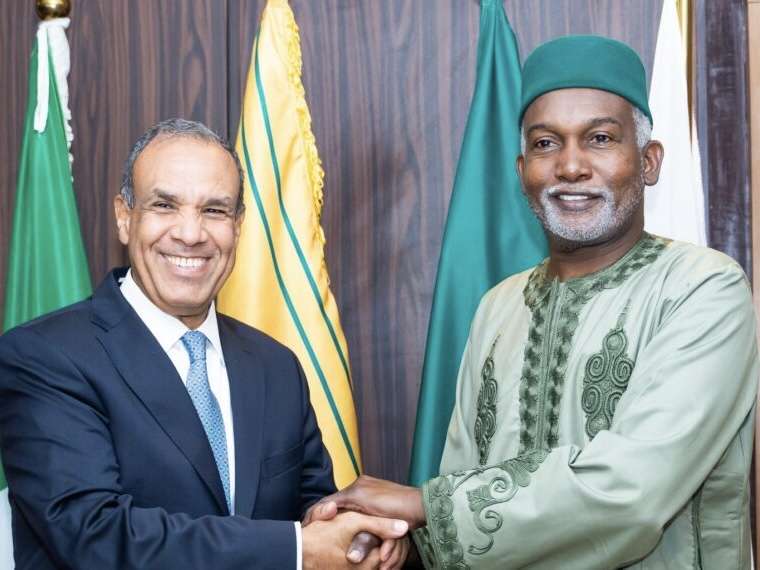Nigeria-Egypt trade relations are entering a renewed phase of strategic cooperation as both nations push to achieve the Developing-8 (D-8) organisation’s goal of $500 billion in intra-bloc trade by 2030.
The pledge was made during the Nigeria-Egypt Business Forum held in Abuja on Monday, where Nigeria’s Minister of Foreign Affairs, Amb. Yusuf Tuggar, addressed business leaders and government officials from both countries.
Tuggar highlighted the historical Nigeria-Egypt trade relations. However, he expressed concern over the low volume of bilateral trade, which amounted to just $211.2 million in 2023, with Nigeria’s exports contributing only $12.2 million.
“The private sector is the real driver of integration. Let this forum ignite deeper collaboration, joint ventures, trade facilitation, and technology transfer,” Tuggar said.
Why It Matters
Tuggar stressed the importance of leveraging the African Continental Free Trade Area (AfCFTA) and removing trade barriers to support industrialisation and regional integration.
He identified key sectors ripe for collaboration, including solid minerals, agriculture, ICT, pharmaceuticals, aviation, renewable energy, garments, leather, and tourism.
“Now is the time for action and partnership. Let us move forward not just as partners, but as brothers and sisters bound by history, vision, and destiny,” Tuggar added.
With Africa’s population projected to hit 2.5 billion by 2050, unlocking intra-African trade is seen by many policymakers as critical to sustainable development.
The Nigeria-Egypt Trade Relations
Egypt’s new Minister of Foreign Affairs, Dr Badr Abdelatty called for a diversification of traded goods and stronger implementation of AfCFTA protocols.
He cited Nigeria’s export of $160 million worth of liquefied natural gas (LNG) to Egypt as a positive sign, pointing to natural complementarities that could be scaled with the right policies and incentives.
“We must diversify the nature of our trade and fully leverage the Africa Continental Free Trade Agreement,” Abdelatty said.
Is the D-8 $500bn Target Realistic?
Experts says achieving the D-8’s $500 billion intra-bloc trade target by 2030 will require more than dialogue. It demands harmonised regulation, improved infrastructure, and private sector leadership.
Tuggar emphasised that private enterprise will be the “real driver of integration,” urging both countries to create the conditions for joint ventures, trade facilitation, and technology transfer.
Nigeria’s Minister of State for Finance, Dr Doris Uzoka-Anite, added that under President Bola Tinubu’s administration, Nigeria is undergoing major reforms to improve its investment climate.
She noted that bold fiscal, monetary, and regulatory reforms were underway to improve the investment climate and ease of doing business.
Also speaking at the forum, President of the Nigeria-Egypt Business Council, Muhammed Lere, pledged to implement business resolutions from the forum and encouraged stakeholders to engage formally to avoid litigation and regulatory pitfalls.
Understanding the D-8 Group
The D-8 group, which includes Nigeria, Egypt, Iran, Turkey, Pakistan, Indonesia, Malaysia, and Bangladesh, was founded in 1997 to enhance economic cooperation among developing countries.
According to experts, the Nigeria-Egypt trade relations forum reflects a strategic shift by both nations to reposition themselves within an increasingly multipolar global economy.
However, economists stress that trade forums alone won’t deliver transformation. What’s needed are enforceable agreements, infrastructure investments, and improved customs procedures to lower trade costs and boost private sector confidence.
Experts argue that platforms like the D-8 and AfCFTA are now critical levers for building resilient economies capable of withstanding external shocks.
Talking Points
Nigeria’s renewed push to strengthen trade ties with Egypt reflects a strategic shift toward unlocking regional trade under frameworks like AfCFTA and the D-8.
At Techparley, we recognise that reaching the D-8’s $500 billion intra-bloc trade target by 2030 will depend not just on forums, but on the real economy. Both governments must move from rhetoric to clear action, enabling businesses to lead with speed and confidence.
Sectors like agriculture, ICT, pharmaceuticals, and renewable energy hold obvious synergies. However, unless trade barriers are dismantled and financing is unlocked for cross-border ventures, the rhetoric of South-South cooperation will remain symbolic.
Practical steps like digitising customs, streamlining logistics, and fostering joint ventures must follow. For Nigeria, the forum is also about signalling reform momentum to foreign investors.
With fiscal and monetary policies under overhaul, the country is betting that trade diplomacy can complement domestic restructuring. What happens next will test whether this was a photo-op or a turning point.





